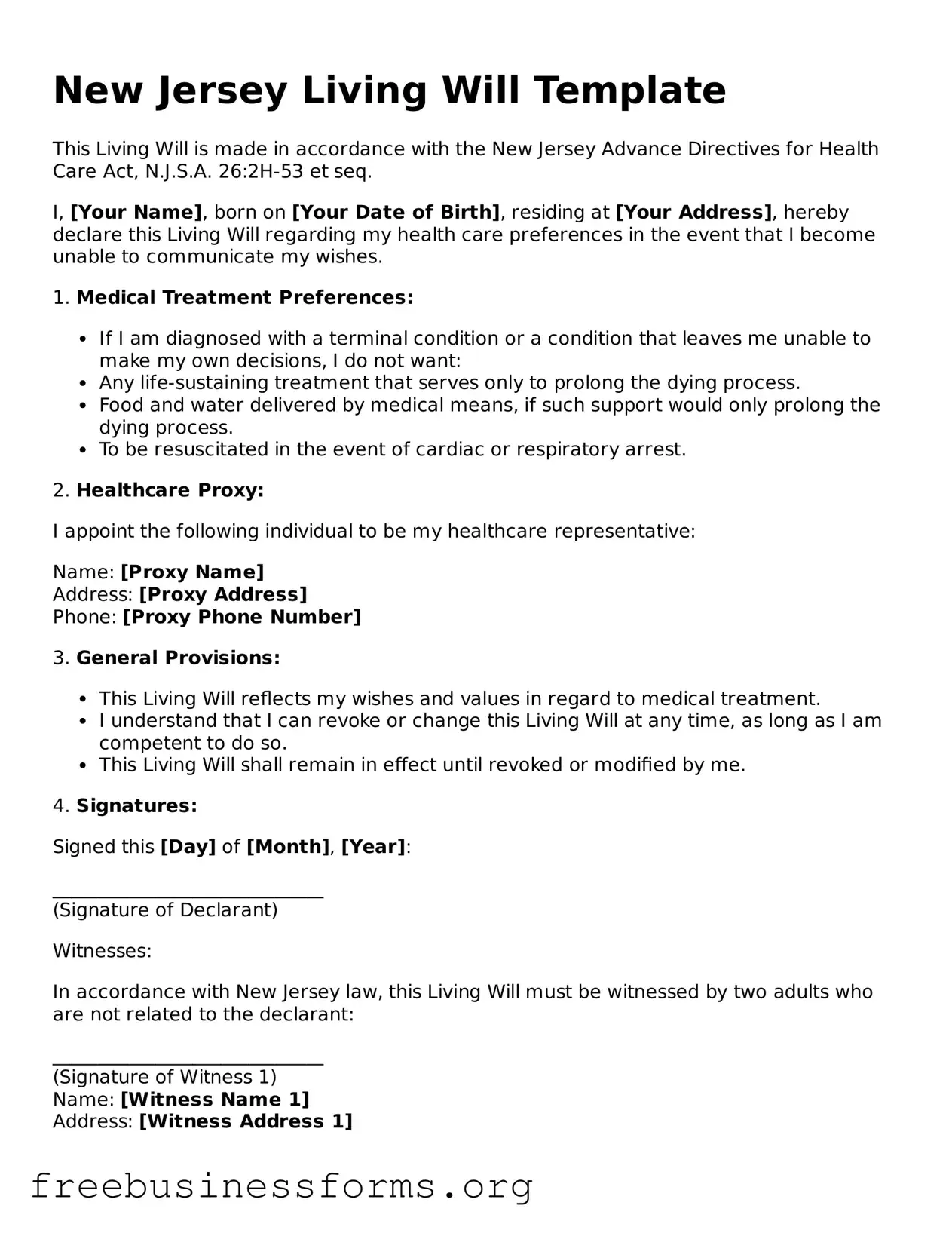Blank Living Will Template for New Jersey
A New Jersey Living Will is a legal document that allows individuals to outline their preferences for medical treatment in the event they become unable to communicate their wishes. This form ensures that your healthcare decisions are respected, providing guidance to medical professionals and loved ones during critical times. Understanding how to complete and utilize this form is essential for anyone looking to take control of their healthcare choices.
Open Form Here

Blank Living Will Template for New Jersey
Open Form Here

Open Form Here
or
↓ PDF File
Quickly complete this form online
Complete your Living Will online quickly — edit, save, download.